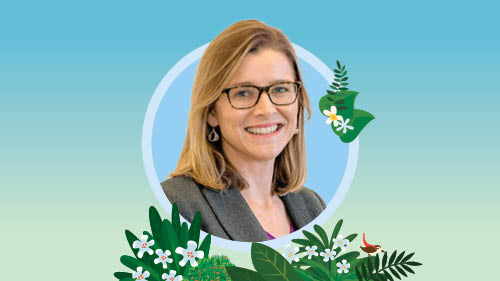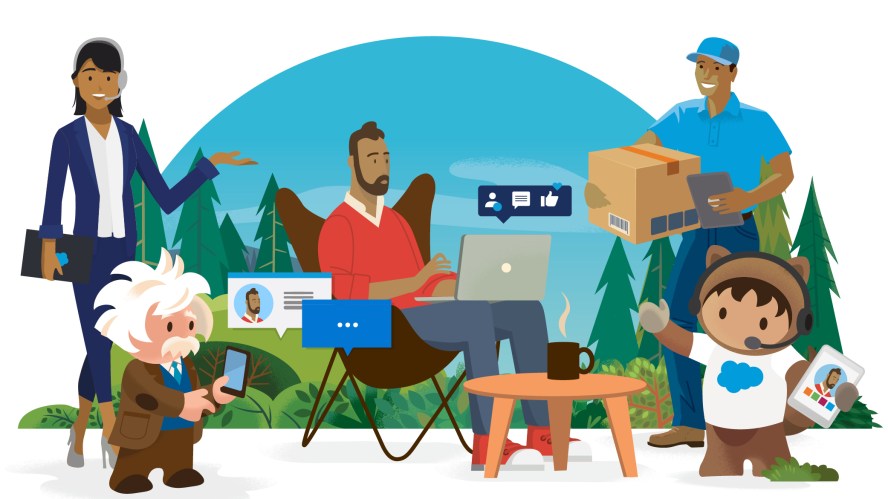SMB Trailblazers harnessing community support for business growth



The fifth edition of our Small and Medium Business Trends Report found that more than one-third of small and medium businesses (SMBs) in Australia and New Zealand considered financial support from local communities to be vital during the pandemic.
Merlin Luck
This might be unsurprising once you consider how many consumers have been homebound due to lockdowns or travel restrictions. But an overarching shift towards buying local and a greater awareness of where our goods come from suggest the trend isn’t just driven by shoppers sticking to their own neighbourhoods – people simply want to support their local businesses.
Of course, this goodwill in itself only goes so far – it needs to be harnessed and nurtured within a radically changed selling landscape. Most respondents (89%) told us that they’d moved operations online in the past 12 months to ensure they could serve customers safely, while nearly a quarter (24%) have prioritised developing relationships over one-time transactions.
Since SMBs have always relied on close relationships with their communities, we wanted to know how Trailblazers are adapting those relationships within pandemic restrictions and an increasingly digital-first world. Here’s what Botero Coffee and PharmaPrograms had to say.
Freeing employees to spend more time building relationships
Prioritising relationships over one-time transactions is just business-as-usual for cafe turned coffee roaster Botero, based in the northern NSW town of Maclean. Jayc Salter, Operations & Logistics at Botero, says the business deliberately spent time talking to their customers and engaging with them during lockdown – appreciating that, for many, it was likely their one outing per day.
But the business’s pre-COVID investments into digital systems is what gave them the ability to recreate this relationship building, regardless of whether customers were able to visit them in person.
“We try to make that online experience feel like they walked in our door: we try to pack the orders nicely, we write ‘thank you’ notes, because that’s the only point of contact for a lot of our customers,” explains Jayc. “The thing that we have here with local people is there’s a connection — they even refer to Botero coffee as ‘our’ coffee. And that’s what we’re trying to do online is to build that connection.”
While wholesale ordering overall understandably decreased during the pandemic, online ordering really took off, supported by a host of promotional activity and a website that continues to grow. While Botero had already built an online presence, it’s a tactic that grew in popularity over the past 18 months, with over half of SMBs increasing their presence online.
That direct business flourished; great coffee combined with great customer service and ease of ordering saw word quickly getting around. And, combined with increased activity on social media, it’s meant that as restrictions have been eased and wholesale ordering has returned to ‘normal’, a whole new direct-to-customer base has been built online.
Perhaps the most significant changes, though, were the digitisation and automation of certain internal processes. Admin and invoicing often required staff to spend an entire day of their weekend sifting through spreadsheets and emails. By partnering with Salesforce, Botero was able to reduce manual admin drastically, freeing its employees to focus on those long-term relationships and more meaningful connections.
Supporting communities and pharma ecosystems for better health outcomes
Another business that jumped on the momentum to deepen relationships with their customers and communities is PharmaPrograms, an organisation that uses digital solutions to support medication usage adherence and health outcomes across pharmacies.
Like Botero, PharmaPrograms pursued digital transformation before the pandemic. In fact, the business began in the digital space and has always used digital solutions to support customers. However, to ensure unified patient engagement in a scalable way, the business built a Salesforce program that created a single portal for pharmacists and helped automate tailored communications.
PharmaPrograms’ General Manager, Nader Mitri, says this means they can deliver content direct to pharmacies and direct to the patients, improving support across the entire ecosystem of stakeholders.
This had immediate benefits, but it also paid off during the pandemic, which massively impacted a key customer: retail pharmacies. Combined with the growth of telehealth, PharmaPrograms was already poised to support these pharmacies during a turbulent and hectic time.
“If we hadn’t put in place our new technology, it would have made life extremely difficult for them,” Nader says. “Pharmacies want to be able to focus on staying open and keeping their patients happy through COVID and all the COVID implications, and don’t want to have to focus on legwork to engage with one of our programs.”
Nader explains that streamlining internal processes through a single platform created across-the-board change for both their customers and employees.
“It was just simple factors of consolidating and giving pharmacies access in a way that we hadn’t given them before. It just meant that for them, and for my team, we created so many more efficiencies that made it easier to navigate COVID-19.”
Due to the changing nature of pharmacy interactions – people, particularly the elderly and those living with medical conditions, were understandably hesitant to be ‘out and about’ – pharmacies needed to be able to interact with customers in a digital way. With PharmaPrograms’ support, pharmacists could continue to provide services to the customers but, more than that, they were also able to communicate more frequently with them and in a more proactive manner – for example, reminding patients about the importance of taking their asthma medication.
Interestingly, the compliance rates of those customers who were reminded to take their medication were significantly higher than those who weren’t able to be reminded.
As this proactive interaction from pharmacists continues to increase, the value a pharmacy is delivering to its customers grows significantly, too – and ultimately, that’s to the benefit of everyone.
Community support – it’s a two-way street
Both of these Trailblazers demonstrate that, while community supports local businesses, you still need the operational and technological infrastructure to harness it and keep cultivating relationships in digital-first environments.
By embracing that customer-centricity and adapting your business to deliver what your customers need right now, you can establish new habits that will remain long after we’ve learned to live with COVID-19.



















